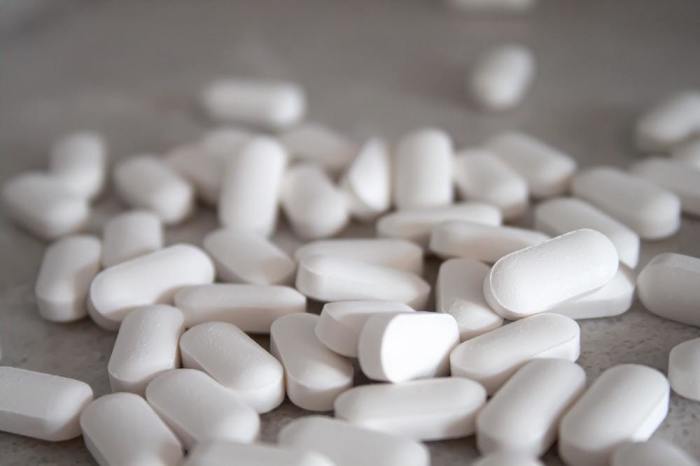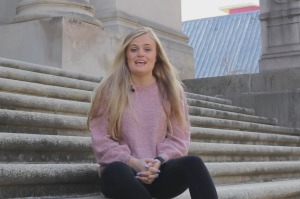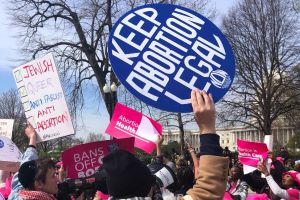Hydroxychloroquine: What is being said?

Debate over the anti-malarial hydroxychloroquine, a drug some say is an effective treatment for the coronavirus, has resurged amid the ongoing pandemic and Big Tech and social media platforms censoring medical professionals who promote it.
The persistent back-and-forth about the drug has continued in part because of fluctuating case numbers and growing deaths as vaccines and other therapeutics are being developed. Earlier this year, President Donald Trump brought attention to the drug after he said he had been taking it as a preventative measure. The president began the regimen following two White House staffers testing positive for the coronavirus. Brazilian President Jair Bolsonaro contracted the virus and has credited the drug for his recovery.
Still, some in the medical community say there is little to no evidence that it is a helpful treatment for the disease.
Below is a round-up of what has taken place in recent months surrounding this drug.
Drs. Birx, Fauci, others opposed: HCQ not effective
Among those who have said the drug for treating COVID-19 is not effective is Dr. Deborah Birx, who has been a key figure advising the president as the White House coronavirus response coordinator.
In a Thursday interview with Fox & Friends, Birx explained that while some say the drug is effective, it's more complicated.
"Science and medicine has always been full of accounts like this," she said, when asked about the doctors who spoke on Monday in favor of the drug, whose stories were subsequently scrubbed from the internet.
"And that's why you do randomized clinical trials, to actually be able to compare patient to patient," she said, noting that the doctors in the individualized practices had no controls.
Thus far, in the randomized controls, there is no evidence that hydroxychloroquine improves those patients' outcomes, she said.
"Whether they have mild, moderate disease or whether they're seriously ill in the hospital. Medicine always has these reports and that's why we do these randomized control trials. There also may be a specific subgroup that does benefit but we can't see those in those randomized controlled trials."
Asked about whether doctors should have the freedom to prescribe the drug if they think their patient will benefit and if pharmacy boards should be permitted to ban it across the board, Birx replied that it varies by state.
"Medical boards decide for their state based on clinical practices," she said, noting that Ohio, which recently instituted such a ban, must have had a specific reason for taking the approach it did and that every state has to examine their situation independently.
At the behest of Gov. Mike DeWine, a Republican, the Ohio Board of Pharmacy reversed course on its ban on the drug Thursday. The initial ban prohibited pharmacies, clinics and other medical institutions from selling or dispensing the drugs but they would still be used in clinical trials.
Dr. Anthony Fauci, who has in large part spearheaded the nationwide response to COVID-19, said in an MSNBC interview Wednesday: "The scientific data, the cumulative data on trials, namely clinical trials that were randomized and controlled in the proper way, all of those trials showed consistently that hydroxychloroquine is not effective."
Similarly, Dr. Carlos del Rio, an infectious disease physician at Emory University School of Medicine, told NBC News that there is no reason to keep talking about the drug in the context of COVID-19.
“It does not work for treatment or for prevention. I have no idea why there is still talk about it, but it’s wrong,” he said.
Some doctors say the drug works
On the steps of the United States Supreme Court Monday, a group of doctors dressed in white coats who called themselves America's Frontline Doctors said that they have been treating many patients who have a variety of medical conditions, including those who have contracted COVID-19, with the drug and that it has invariably helped them.
Notable among the physicians who spoke was Dr. Stella Immanuel, a Houston-based doctor who was born in the African nation of Cameroon.
"Nobody needs to get sick. This virus has a cure — it is called hydroxychloroquine, I have treated over 350 patients and not had one death," Immanuel said, noting she had extensive experience treating malaria patients in West Africa.
Considerable mass media coverage of her words has centered on the fact that she is also a pastor who has a deliverance ministry and on her previous remarks about what sexual and health problems demonic spirits can cause.
Video footage of their remarks was soon scrubbed from many social media platforms and website hosting service Squarespace disbanded the doctors' website.
Dr. Joe Ladapo, a physician from the University of California-Los Angeles who appeared with the group, told USA TODAY in an email that he showed up at the event on the steps of the high court "because I believe it’s critically important for us to have a discussion that includes different perspectives about our approach to COVID-19."
Arguing in favor of the drug, Harvey A. Risch, a professor of epidemiology at Yale School of Public Health, opined in Newsweek last Thursday that the medication is a particularly good treatment when given early on when patients become sick with COVID-19 and when combined with antibiotics like azithromycin or doxycycline and the nutritional supplement zinc.
"Physicians who have been using these medications in the face of widespread skepticism have been truly heroic. They have done what the science shows is best for their patients, often at great personal risk," Risch said.
"I myself know of two doctors who have saved the lives of hundreds of patients with these medications, but are now fighting state medical boards to save their licenses and reputations. The cases against them are completely without scientific merit."
The medication has become disregarded partly because it has become highly politicized, he continued, explaining that many see support for or opposition to the drug as a political identity marker. But the drug has not been properly used in many studies, he maintained. The Food and Drug Administration recently announced concerns about cardiac arrhythmia risk but Risch argued that it was based on an incomplete picture of how such cases are reported in the agency's Adverse Event Reporting System.
"In the future, I believe this misbegotten episode regarding hydroxychloroquine will be studied by sociologists of medicine as a classic example of how extra-scientific factors overrode clear-cut medical evidence," he said.
"But for now, reality demands a clear, scientific eye on the evidence and where it points. For the sake of high-risk patients, for the sake of our parents and grandparents, for the sake of the unemployed, for our economy and for our polity, especially those disproportionally affected, we must start treating immediately."





























